Editor: Act Locally Waco is sharing a series of blog posts — Faith Doing Good — about local religious groups working in the community. These pieces were written by Baylor University students from the Department of Journalism, Public Relations, and New Media.
By Kaylee Cannon
Derek Nease, the family teaching pastor at Crossroads Fellowship in Waco, expressed his love for the Waco community and gave details on how COVID-19 has affected the church congregation.
“The church is more than just a building, it’s more than just a place in the neighborhood. It truly is a group of people that want to see the gospel of Jesus Christ go forth,” Nease said.
Nease said one of his favorite parts about serving the Waco community is the healthy partnership and communication among many of the churches in the area. It’s not just a certain denomination, but all of the churches coming together to serve the community.
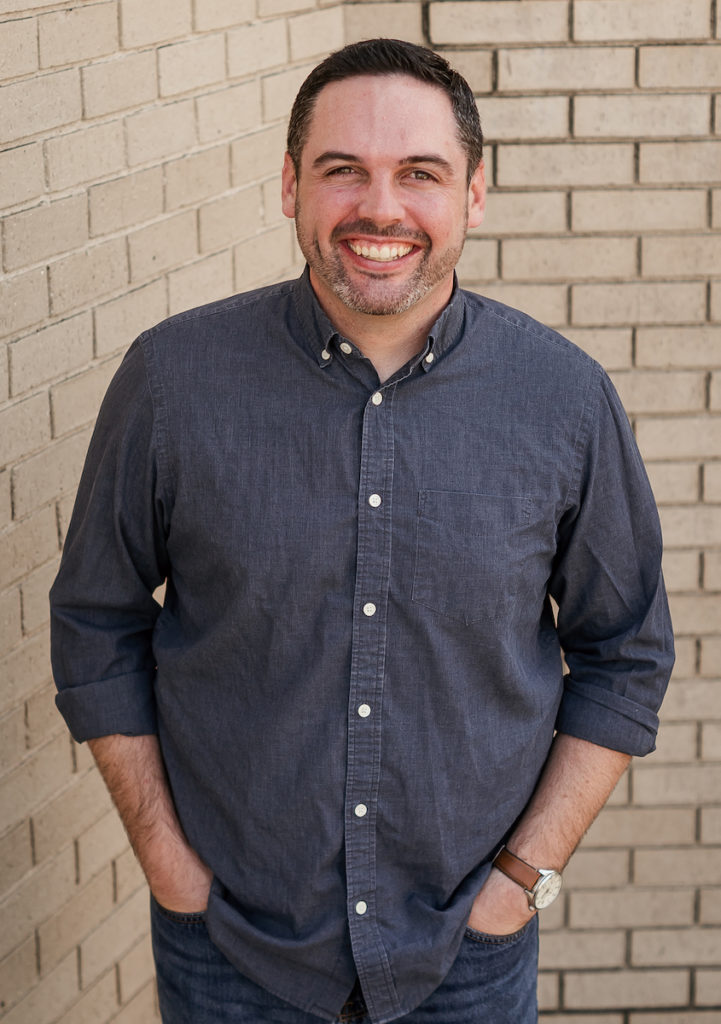
“That’s what I love about this community. That there are pastors that are willing to say I have a church I am leading, but the bigger thing is how we as a city can do this together,” Nease said.
Nease said the church had a project in November 2020 called, “All In.” They worked with organizations such as Mission Waco to help the community with various needs.
According to the Crossroads Fellowship website, part of their mission is to form relationships. They believe relationships with God and each other form the foundation of their purpose as a church.
“What I enjoy about the Waco community is that the people have appreciated and welcomed us in and have said thank you for still being a part of bringing change whether we’re able to meet in-person or not,” Nease said.
Nease said that the church had to make quick changes to follow COVID-19 guidelines. They had to get the Sunday teachings available for people to watch and listen to online. In the spring, they began holding in-person services with masks, as well as streaming online for those who wished to stay home.
“What do we value as a church organization? Do we value the meeting? Or do we value life transformation?”COVID-19 helped people “realize how we can still have an impact on people’s lives,” Nease said.
Crossroads Fellowship believes in meeting people where they are with a welcoming environment with accessible worship and preaching, its website says.
“We have and will continue to do the missional things that we always do which brings people, even those not in the church, together,” Nease said.
Communication among churches is new in Waco, Nease said. It has been a very good change in the community as pastors have gathered to pray.
“It’s special for several hundred pastors to be in one room together and pray together,” Nease said. “Not only for their organization and their church specifically, but for the name of Jesus to be raised and praised in the city of Waco.”
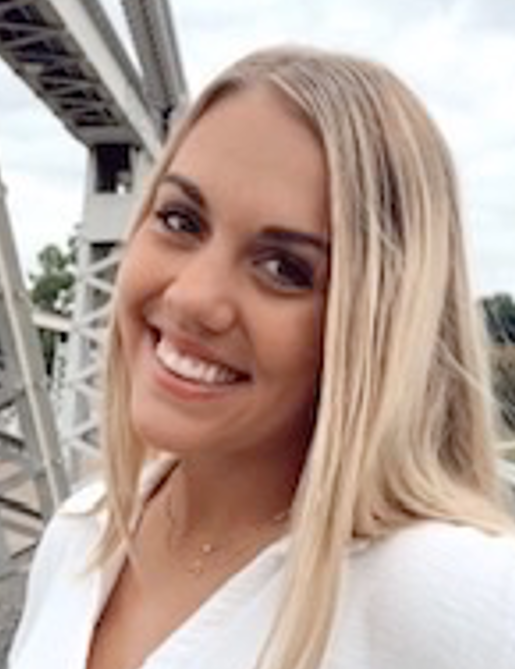
Kaylee Cannon is a sophomore at Baylor University majoring in business management with a minor in public relations. She is from Jacksonville, Ore.
The Act Locally Waco blog publishes posts with a connection to these aspirations for Waco. If you are interested in writing for the Act Locally Waco Blog, please email Ferrell Foster at [email protected].
Editor: Act Locally Waco is sharing a series of blog posts — Faith Doing Good — about local religious groups working in the community. These pieces were written by Baylor University students from the Department of Journalism, Public Relations, and New Media.
By Brooke Giacin
Temple Rodef Sholom may be small, but during the pandemic they have come together to find unique ways to grow from within their small congregation.
Monica O’Desky, Temple Rodef Sholom’s cantor, said the synagogue’s community service is completed on an individual basis rather than a congregation-wide basis.
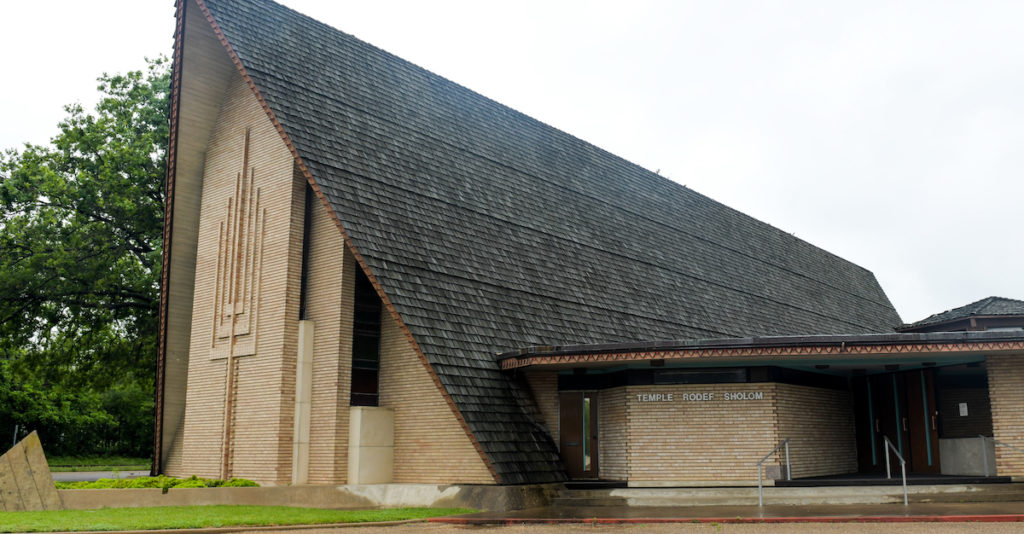
“This is partially because our numbers are relatively small,” O’Desky said. “People are somewhat scattered. In a larger congregation, you would have different activity groups.”
Temple Rodef Sholom’s congregation has nearly 40 members. Many members do their own community outreach. For example, some individuals devote their time to volunteering with Planned Parenthood.
Prior to O’Desky’s arrival, the congregation was very small. Over time the spirit of the congregation began to look better and numbers increased, O’Desky said. The music created an essence that encouraged people to attend services more frequently.
“During the pandemic, having to come up with socially distant but different strategies has been tough,” O’Desky said. “The Zoom services have strangely been successful. We get more people on Zoom than we do in person.”
O’Desky said she tries to make the live and Zoom services inclusive and different.
“We conduct our services a little bit more loosey goosey. I bring a lot of outside influences, some from conservative traditions, some from way out there, some from whatever,” O’Desky said. “We are not quite so rigid. We have done drum services where I bring out drums, tambourines, and rhythm instruments. It is all projected on a PowerPoint.”
O’Desky said she kept the congregation interconnected through interactive discussions, singing songs, and playing music.
“I like to make each service special for the congregation,” O’Desky said. “Where I was ordained, it was not affiliated with one of the movements. It was not reform. It was not conservative. So we learned everything.”
O’Desky said the congregation faced its greatest challenges during the Jewish high holidays: Passover, Yom Kippur, and Rosh Hashanah.
“We just finished Passover,” O’Desky said. “We had a marvelous group put together take-home Passover bags which had all the stuff you need to make and to host your own little Seder.”
O’Desky said high holidays for the Jewish faith are a time of gathering as a family. Temple Rodef Sholom tried to make these services more interactive and special while following COVID-19 guidelines.
“I did an hour-long Passover video that was with members of the congregation doing the readings and doing the parts and then edited it into a video,” O’Desky said. “It was partly the Abilene congregation and partly here. It wasn’t just me standing there.”
The Zoom services on Fridays and Saturdays consist of the Abilene congregation and the Waco congregation. O’Desky said the video allowed both congregations to see people they know who were participating. The congregations are very similar — small, few kids, and with many elders.
“Since they Zoom together so often, when the congregations came together online and watched this video it was like seeing family,” O’Desky said. “I did that also for the other high holidays. I actually videoed myself part from the Abilene congregation and part here so everyone saw their own sanctuary.”
With the wide availability of vaccinations, Temple Rodef Sholom has been holding more live services. O’Desky said their goal is to continue to make their congregation cohesive during these times.
“We hope more people will feel comfortable to come to the live services,” O’Desky said. “I cannot wait to finally see my congregation in person again.”
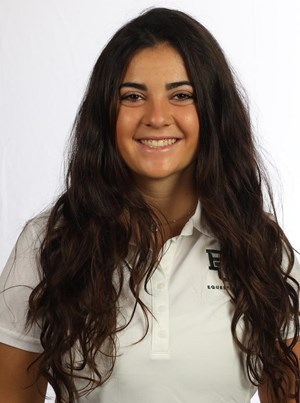
Brooke Giacin is a sophomore student-athlete majoring in journalism and finance at Baylor University.
The Act Locally Waco blog publishes posts with a connection to these aspirations for Waco. If you are interested in writing for the Act Locally Waco Blog, please email Ferrell Foster at [email protected].
Editor: Act Locally Waco is sharing a series of blog posts — Faith Doing Good — about local religious groups working in the community. These pieces were written by Baylor University students from the Department of Journalism, Public Relations, and New Media.
By Jenna Fitzgerald
St. Matthew Lutheran Church is a congregation of about 300 parishioners and has many members who are ready to serve.
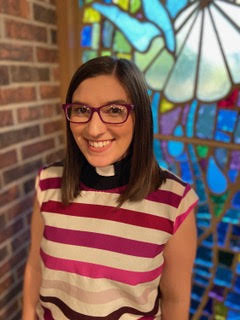
According to St. Matthew’s website, the church mission statement is “to serve our neighbors as Christ’s family in service.” Rev. Kelsey Fitting-Snyder, pastor of St. Matthew, said this vision means that service extends beyond St. Matthew to the entire Waco community.
“As a pastor in the Evangelical Lutheran Church in America, I’m called to St. Matthew Lutheran Church to serve as pastor, but our vocation is always about serving God’s people wherever we are, in the communities,” Fitting-Snyder said. “For us, there’s not a separation of ‘you love God’ and ‘you love your neighbor.’ No matter what vocation you are in — if you’re a pastor or a student or a scientist — vocation for us is showing our Christian love through the work that we do.”
Fitting-Snyder has been pastor of St. Matthew since September 2019, and during the COVID-19 pandemic she spent the majority of her time finding ways to serve. She took note of how some parishioners donated their stimulus checks to set up a church-wide fund. The fund is used to support parishioners in need, as well as the church’s benevolences, which are the organizations it gives to regularly like Mission Waco, Caritas of Waco, and Lutheran Sunset Ministries.
“During COVID, everyone’s budgets were tight, and while clothing donations and food donations are really important, what a lot of those organizations needed to keep going was money,” Fitting-Snyder said. “We were fortunate enough and people’s hearts here are so big that they wanted to make sure that we didn’t cut back on our giving out to the community, but that it was increased in that time so that people were still able to get the services that they needed.”
In addition to providing monetary aid, St. Matthew put together care packages for people in nursing homes and continued its quilting ministry.
Fitting-Snyder said one of the most important projects it undertook, though, was a drive for sanitization supplies for its teachers and professors.
“We have a bunch of teachers in our congregation, elementary school teachers and Baylor professors and things like that, so when sanitizer and Clorox wipes and stuff were really scarce, we started taking donations from our people,” Fitting-Snyder said. “Even after the shortage, people still kept bringing them, so I still have some here to give to my teachers when they say, ‘Hey, we need some more Clorox wipes.’ When the schools were short on supplies, that was just one thing that we could do to help lighten the burden.”
Fitting-Snyder emphasized that members of the congregation can utilize their gifts to find small ways to do good, which can eventually build into far-reaching, impactful community service.
“I firmly believe that there’s no act of kindness or ministry or anything that is too small,” Fitting-Snyder said. “The analogy I love for that is, if you’re sitting in a kayak on the river, that one little kayak is displacing water, and because that water underneath you is displaced, it’s affecting the whole river. A lot of times, rivers make their way into larger bodies of water, so your one little kayak is impacting and rippling to something much bigger. That’s how I see our ministry happening here.”
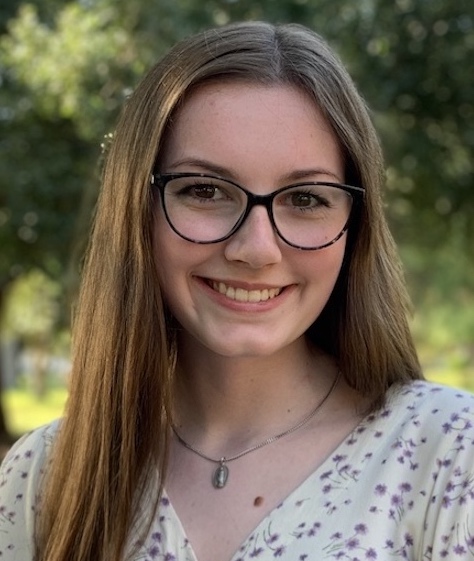
Jenna Fitzgerald is a freshman university scholars major at Baylor, concentrating in journalism, Spanish, political science, and poverty studies and social justice.
The Act Locally Waco blog publishes posts with a connection to these aspirations for Waco. If you are interested in writing for the Act Locally Waco Blog, please email Ferrell Foster at [email protected].
Editor: Act Locally Waco is sharing a series of blog posts — Faith Doing Good — about local religious entities working in the community. These pieces were written by Baylor University students from the Department of Journalism, Public Relations, and New Media.
By Mahak Rajwani
Waco has many places of worship, and the Islamic Center of Waco holds a special story. The Center was established in 1987 and is still led by Afzal Siddiq.
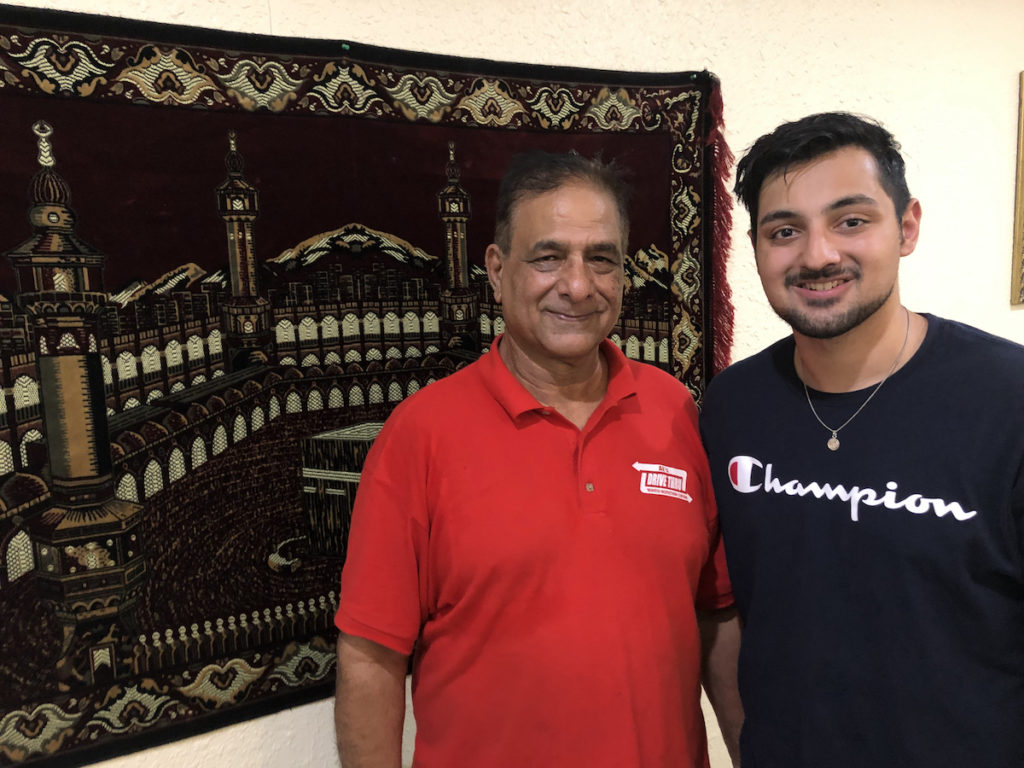
Siddiq dedicates an immense amount of time and effort serving as president of the center, as well as pursuing other professional endeavors.
“Our community is 100% unique and is very welcoming of diversity,” Siddiq said. “I want to encourage the idea of learning about other cultures and creators.”
As different as varied religions may seem, Siddiq said they often intertwine and are based off of each other. Christianity and Islam are actually very similar at their core, he said, and it adds to a sense of unity within the communities.
The Islamic Center hosts a dinner for church leaders in Waco during Ramadan to promote good relations. This speaks volumes about their character because of the effort they’re willing to dedicate to supporting the local community and what they stand for.
Community involvement is visibly important to them, and they put time and effort into serving people in a multitude of ways.
“We like to work with Habitat for Humanity consistently, and I have become a board member for that, as well. We are also closely associated with the Waco Interfaith Conference,” Siddiq said.
Islamic Center leadership consists of the president and about five or six board members, but it’s an open environment where members can provide input or feedback at any time. There is no general hierarchy within the Islamic Center.
“I’ve seen this place grow over the years. People come and go, but the values remain the same,” Siddiq said.
In the Islamic faith it is integral to pray five times a day, and on Fridays they have special ceremonies for what is known as “Jumma.” The mosque is open throughout the day for any members who choose to use it for daily prayers.
Afzal Siddiq, his wife, and their two sons all like to be involved and as a whole are all very committed to the center.
“My wife generally cooks food for the community on Fridays. She likes to contribute in her own way,” Siddiq said.
The Islamic Center of Waco demonstrates what it means to embody love for one’s faith, community, and the world around them. “I want to express how important it is for me that we are good representatives of the Islamic faith,” Siddiq said.
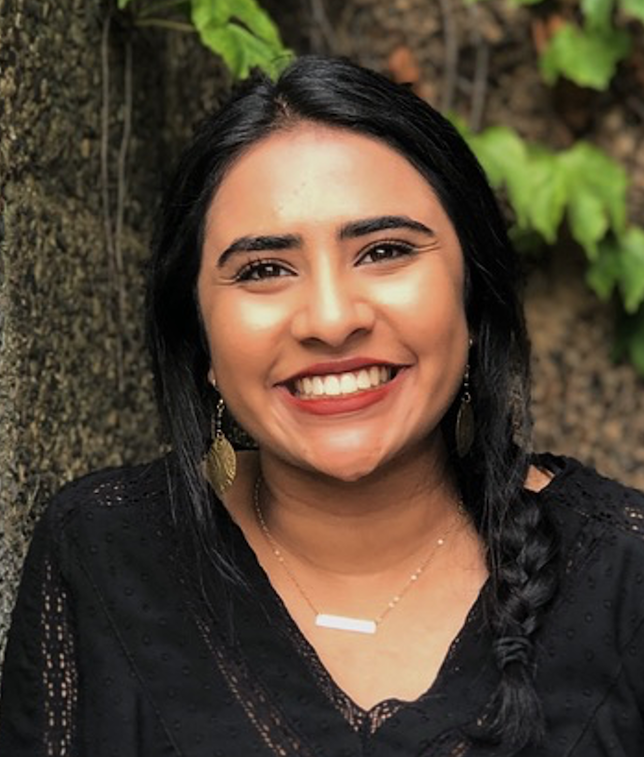
Mahak Rajwani is a student at Baylor University who is originally from California. She is a second-year business major concentrating in professional sales and marketing, with a minor in public relations journalism.
The Act Locally Waco blog publishes posts with a connection to these aspirations for Waco. If you are interested in writing for the Act Locally Waco Blog, please email Ferrell Foster at [email protected].
Editor: Act Locally Waco is sharing a series of blog posts — Faith Doing Good — about local religious groups working in the community. These pieces were written by Baylor University students from the Department of Journalism, Public Relations, and New Media.
By Rachel Hemphill
Cars line up in rows across a church parking lot. A pastor rises on a lift as the sound of honking fills the air. He welcomes the congregation, and the horns intensify as he begins preaching the message.
For Toliver Chapel Missionary Baptist Church, this was what a typical Sunday morning service looked like in the spring. Finding a creative way to continue meeting was just one of the many ways the church provided for its community during the pandemic.
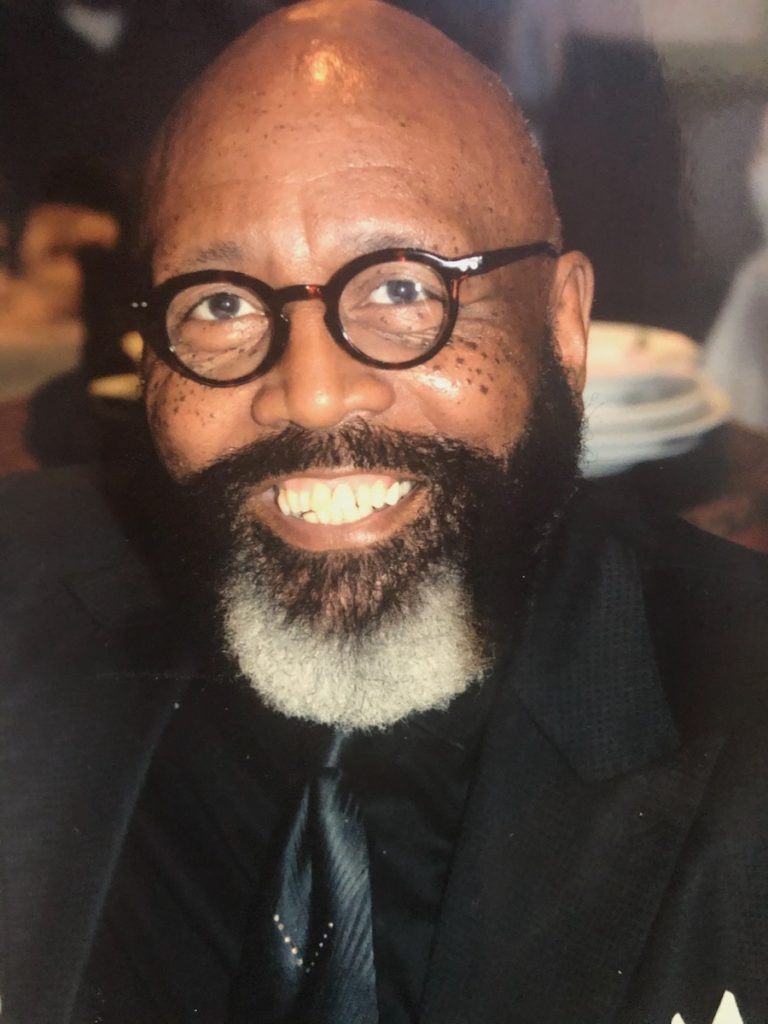
“We’ve not been in our sanctuary for worshiping for over a year,” Dr. Jimmy Hunter, head pastor of Toliver Chapel Missionary Baptist Church, said. “We have drive-in worship so everyone drives in and parks in the same direction, and I go up in the air on a lift.” (Toliver Chapel has recently reopened their sanctuary for worship. This article was written in the spring.)
The church has been a part of the Waco community for 127 years. According to the Texas Historical Markers web page, the congregation grew out of a Sunday school class led by Rev. L. Toliver in July 1895. The East Waco church eventually moved to a Price Street location, then expanded in 1917 with a new sanctuary at its current location on Elm Avenue.
“We try to be visible in the community,” Hunter said. “Wherever we find a need or whatever kind of deal, we’re pretty off into those kinds of things.”
The church has many programs, including working with the Central Texas Food Bank to host food drives, partnering with J.H. Hines Elementary School, and working with senior citizens.
“We’ve tried, like everyone else, to maintain our service until everything goes back to normal,” Hunter said. “I do think, however, that once we are re-engaged, we’ll still have work in the community. But I think the church overall has thrust into new ways of ministry.”
Toliver has been available to the community, even amidst regulations during the pandemic. They have come up with creative ways of being an outreach center, which includes hosting COVID-19 testing and immunizations.
“COVID has been a challenge because it has stagnated us to a certain degree because there is only so much we could do,” Hunter said. “We couldn’t have the types of contacts that we were accustomed to having.”
Despite the difficulties faced with protocols, Toliver has managed to stay connected with the congregation. They have hosted Bible study by way of a conference call and prayer time on Wednesday. COVID-19 moved Toliver to launch new ways of reaching the community.
“Since I’ve had to go that direction it has opened us up,” Hunter said. “I mean, we’ve had people watching us from London. So, it really has pushed the church beyond the walls, and moved our whole mindset up into the times we are in.”
When an opportunity to help the community becomes available, the congregation of Toliver doesn’t miss a chance to serve. Even during the winter storms, the church passed out water and Hunter individually called to check on his members.
“I think historically, persons within the community have kind of looked at our church as one that casts into the forefront of things,” Hunter said. “The church has always been a church that’s community-oriented.”
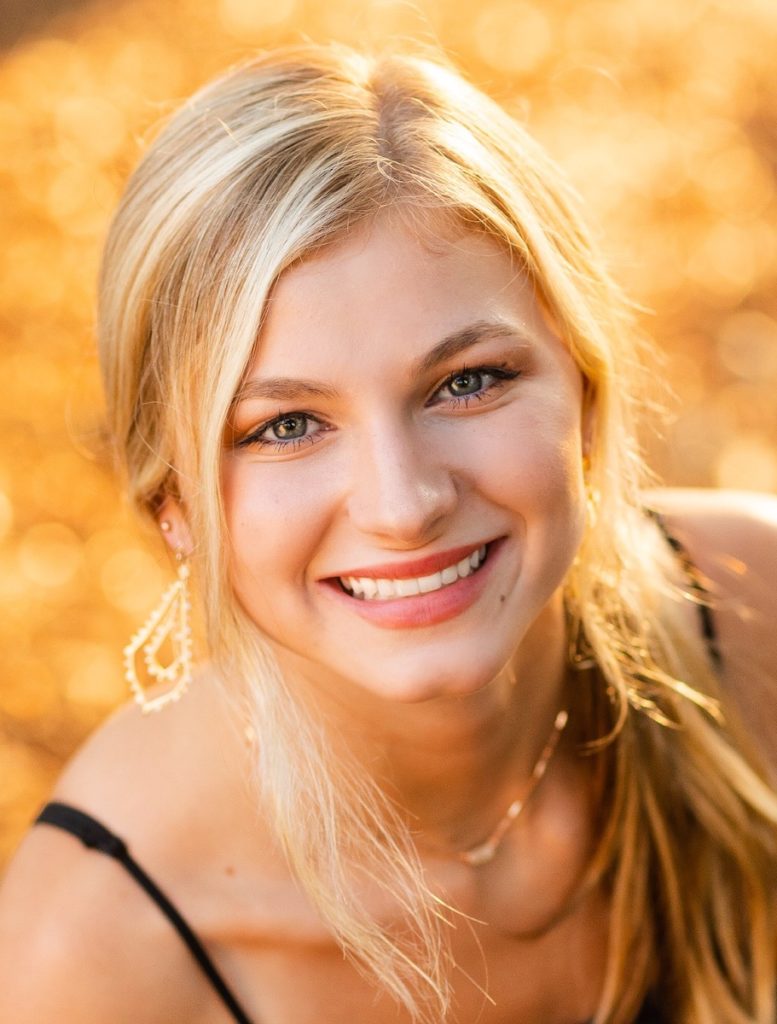
Rachel Hemphill is from Texarkana, Texas, and Baylor freshman majoring in business marketing and minoring in advertising.
The Act Locally Waco blog publishes posts with a connection to these aspirations for Waco. If you are interested in writing for the Act Locally Waco Blog, please email Ferrell Foster at [email protected].
Editor: Act Locally Waco is sharing a series of blog posts — Faith Doing Good — about local religious entities working in the community. These pieces were written by Baylor University students from the Department of Journalism, Public Relations, and New Media.
By Lexi Masarweh
Father Eduardo Jazo is passionate about future plans and how St. Francis on the Brazos Catholic Church currently helps the community.
“I find joy. I find happiness in serving my community,” Jazo said. “It’s because it is a gift of God.”
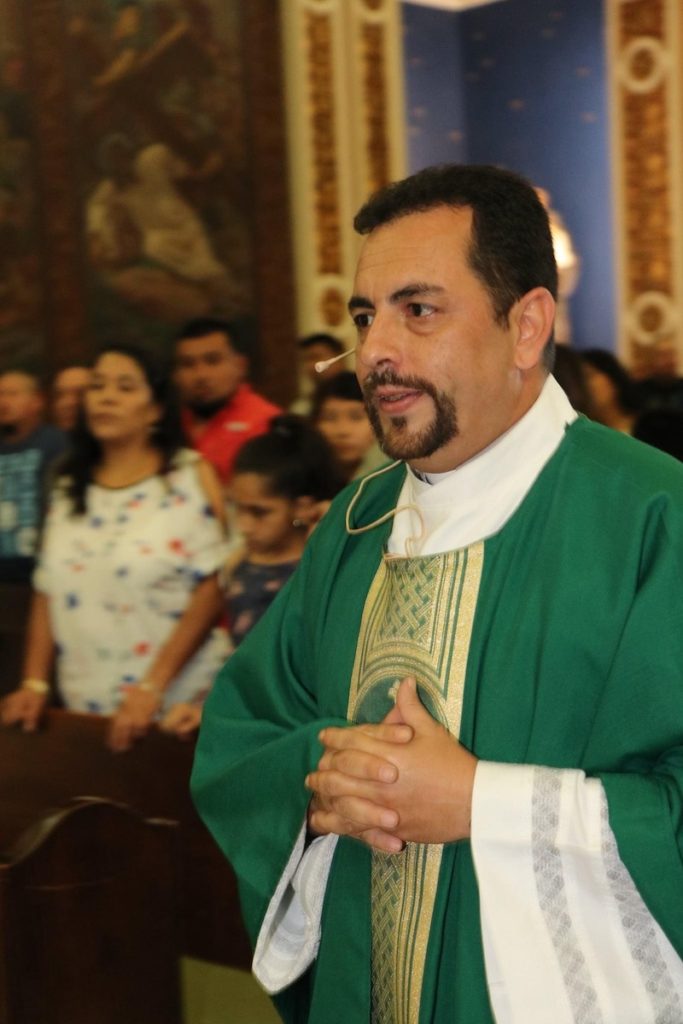
Jazo said it is his vocation and he is just answering God’s calling. Jazo said he is happy serving others and will continue to do so until he does not “feel fulfillment from it anymore.”
St. Francis on the Brazos had a food pantry to help those in need of groceries, but the church had to suspend the pantry due to the COVID-19 pandemic. The majority of people in need of it were elderly and stopped coming to the church due to the pandemic.
“The pandemic stops everything. . . . It was very difficult because we depend on the people who attend mass, and the attendance of mass dropped really, really hard,” Jazo said.
The pandemic hit many churches hard. Before COVID, 400 people attended mass each week, and now 100 people are attending. “In this moment we are trying to survive as a church, and we are trying to do the best,” Jazo said.
According to the St. Francis on the Brazos Church website, the food pantry was established by the Franciscan Nun, Sister Francis. The food pantry operated since 1992. The church is dedicated to helping the elderly and those in need by providing food and clothing regardless of faith or status.
Jazo said the food pantry was working well. However, he thinks the church needs to do more. Jazo is looking for programs offering legal advice since many people in the parish are immigrants.
The church will host a vaccination clinic 9 a.m.-1 p.m. July 11.
Even though they do not currently have a pantry, Jazo said the church provides groceries for those in desperate need. When the pantry restarts the main difference will be that the church has stopped working with the Central Texas Food Bank. The church can freely pass out food to whomever they want to and whenever.
The church receives donations of clothing and other items. Jazo said the church works with Catholic Charities of Texas and the Diocese of Austin. This helps the community as well. Jazo said, for example, the church received 800 boxes of diapers.
“The things we receive as donations we give,” Jazo said. “We find someone who needs it.”
Jazo said the church tries “to help in a spiritual way.” This is essential, especially during hard times. Jazo and the church tries to give hope to those who have been affected by the COVID-19 pandemic. Jazo said they reassure others that they have a family within the church. The church lifts those up and they come together to pray for those who are sick and in need of spiritual guidance.
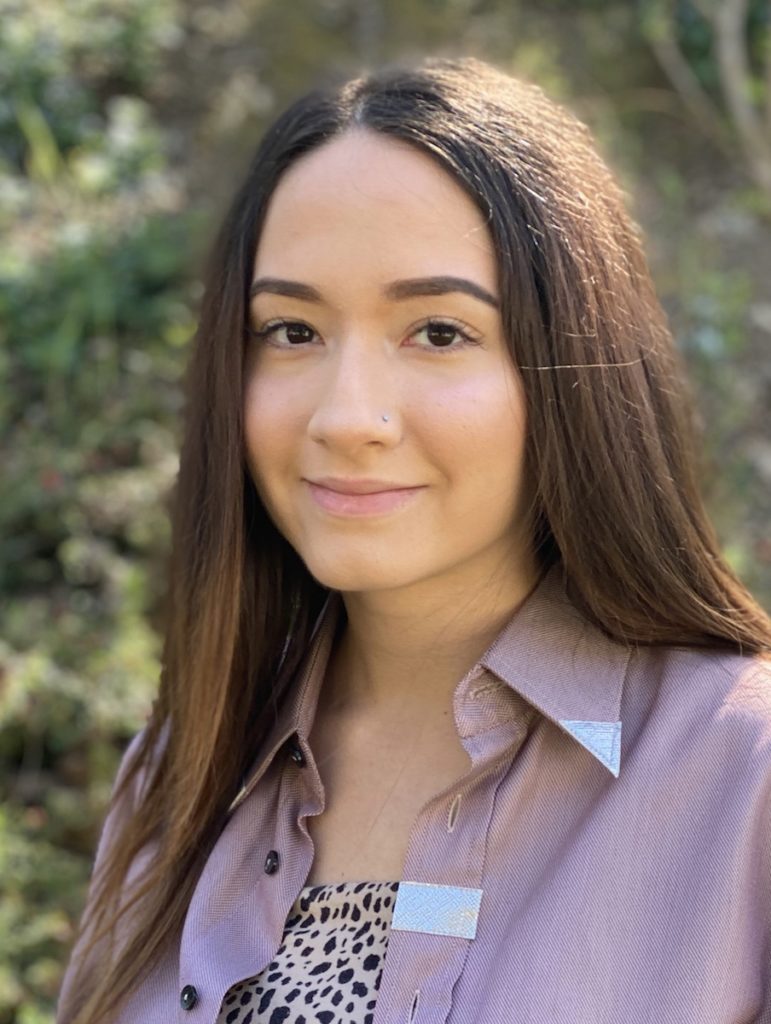
Lexi Masarweh is a sophomore at Baylor University. She is a corporate communications major and a minor in public relations. Lexi is from Pleasant Hill, Calif., which is close to San Francisco.
The Act Locally Waco blog publishes posts with a connection to these aspirations for Waco. If you are interested in writing for the Act Locally Waco Blog, please email Ferrell Foster at [email protected].
Editor: Act Locally Waco begins a new series of blog posts today — Faith Doing Good — about local religious entities working in the community. These pieces were written by Baylor University students from the Department of Journalism, Public Relations, and New Media.
By Dane Valdez
Acts Church Waco is a small, Baptist-affiliated place of worship embedded in an underserved neighborhood. David Booker and his wife, Kim, have been serving as lead pastors since they planted the church in 2007. Although the church’s congregation is small when compared to other popular churches in Waco, Acts Church is committed to using their resources to show God’s grace throughout the community.
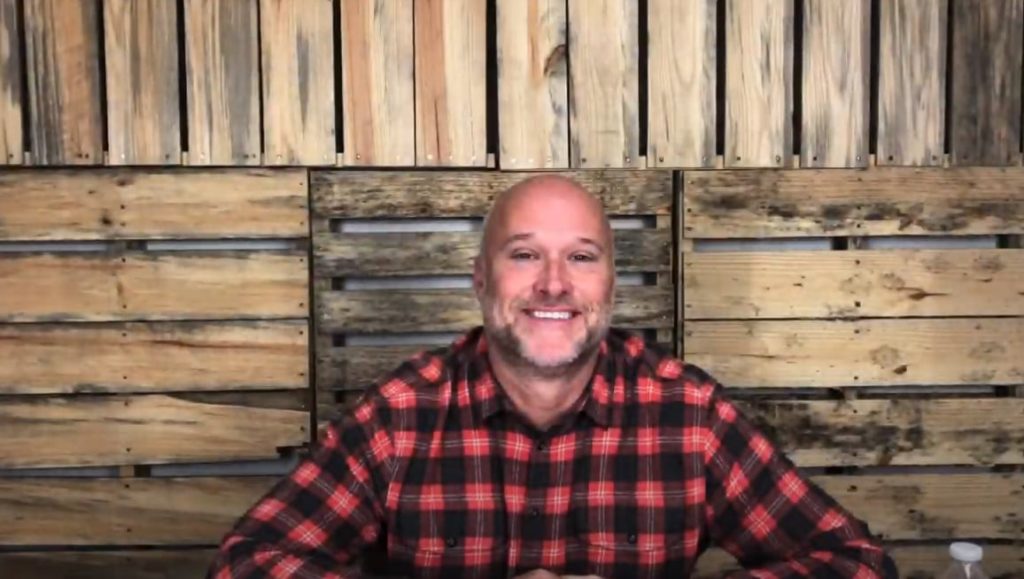
The church has launched multiple initiatives to help those in need of financial assistance. The church runs a food pantry, operates an after-school children’s program, and even raises funds to buy vehicles and put down payments on homes for struggling members of the congregation.
“We feel that the Bible teaches that the church needs to be a light, especially with all the chaos and hate going on, the church needs to practice love in our own neighborhood and community,” David said. “If we are loving on people, hopefully they will be more willing to hear what we have to say. We are called to love on our community, to be the city on the hill, a place that people can run to for help.”
With over a quarter of Waco falling below the poverty line, according to the U.S. Census Bureau, Acts Church’s mission to allocate a large portion of its financial resources to the community surrounding them shows their commitment to showing God’s love through acts of service. On their website, the church describes evangelism not as a ministry, but a way of life.
“I always just have to remember that God has unlimited resources and that anytime he wants to give us money to finish our building he’s fully capable of it,” Booker said. “So I think if we view man as our supplier, then we will start to see these gifts as sacrifices. But if we view God as our supplier, then we will keep it correct.”
Because Booker views giving to those in need as a biblical obligation, the church specifically designates funds to better the community and assist members of the church. Once a month, a “special offering” takes place. The money raised in these services is directed particularly to an act of service by the church, whether it be helping fund mission trips or supporting a church member in need.
“We are limited in our resources. We can’t help everyone, but I think again that’s why we try to really work with people and help them. And God is pretty faithful to provide in those types of ways,” Booker said.
Acts Church seeks to practice what it preaches by using its resources to bless others, which can be attributed not only to the church’s leadership, but also to the generosity of the congregation.
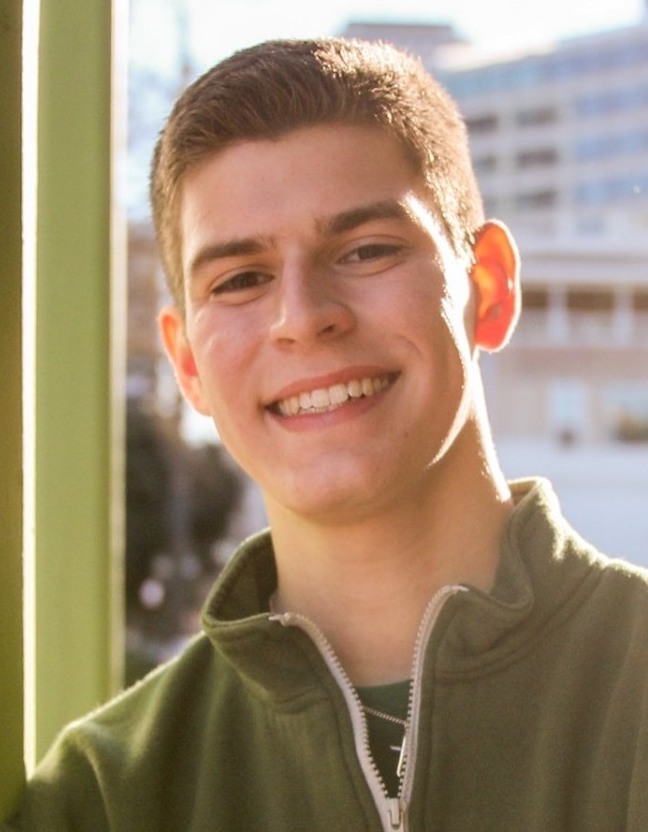
Dane Valdez is a Galveston freshman at Baylor University studying political science and journalism.
The Act Locally Waco blog publishes posts with a connection to these aspirations for Waco. If you are interested in writing for the Act Locally Waco Blog, please email Ferrell Foster at [email protected].
By Andrea Zimmerman
Tuesday morning, Feb. 16, the winter storm had brought life in Waco to a halt. With our calendars suddenly empty, yet still being a goal-driven parent, I was in the middle of a Marvel Avengers Movie Marathon with our sons when my husband, Aaron, got a call.
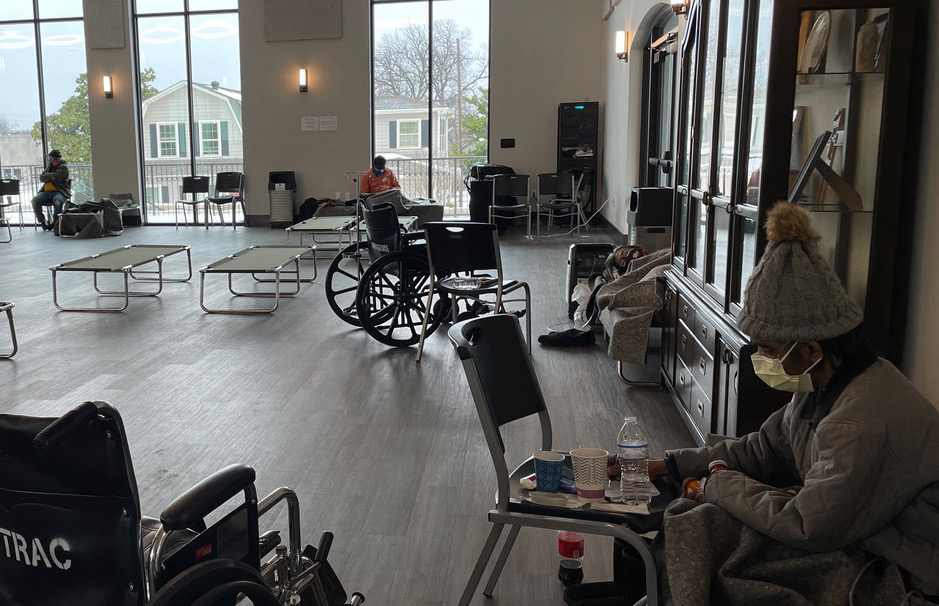
Aaron is rector (senior pastor) of St. Alban’s Episcopal Church. The city was calling to take him up on his offer to open up the church’s new Parish Hall (what some churches call a fellowship hall) as a warming center. We had zero experience with this type of emergency but were glad to put our resources to use for the community. The church still had power and water, and since we live near the church, we could safely get there on foot.
For us, like every other Wacoan, experiencing negative temperatures and an ice/snow/ice sandwich was dumbfounding and surreal. Couple that with the loss of power, heat, and water by so many, it created a real crisis for everyone. This was especially true for the most vulnerable in our community, many of whom depend on electricity for medical devices they need to live.
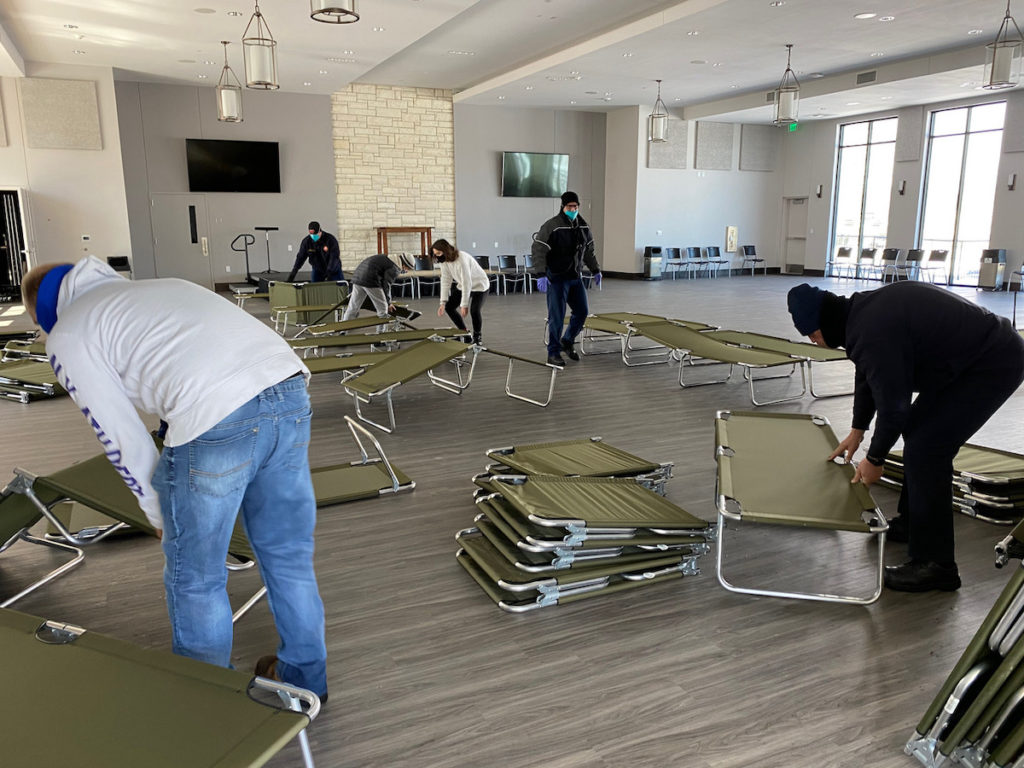
Our family rushed to the church to arrange the space and prepare for the City of Waco to deliver cots and blankets. Our kids shoveled snow with the snow shovels we brought from our years living in Pennsylvania. I started coordinating the whole endeavor.
Our social media (@stalbanswaco) got the word out that the space would be available. Then we started calling people to help; this effort was led by our associate rector, the Rev. Neal McGowan. We knew it would be challenging to find volunteers who could (1) get to the church, and (2) who were vaccinated against or who had active COVID-19 antibodies. We would soon see God provide.
While doing all that, we were hit with the reality that we hadn’t used this space in the church since Shrove Tuesday (aka Fat Tuesday, aka Mardi Gras) 2020. The kitchen was bare. Supplies were minimal. So we had to quickly figure out how to turn snacks from the Youth Room into enough food to feed our anticipated guests.
It was not lost on us that it was in fact Shrove Tuesday 2021, the one-year anniversary of our grand opening of this new, beautiful, 5,000-square-foot space. We had intended to use the space to serve the congregation and community with lectures, seminars, events, and large gatherings, but had shut down due to the pandemic. Now, the space was coming back online, but in a new and surprising way as a warming center.
As we opened our doors and guests arrived, it was clear St. Alban’s was equipped to serve the specific needs of our guests. Our first volunteer, who showed up out of the blue, was Elizabeth “Liz” Ligawa. Aaron had gotten to know Liz, a medical social worker and faith-based community organizer, through working together on the COVID-19 crisis. I was happy for the help, but at first I didn’t think we needed so much expertise. Well, it turns out we did, but I’ll get to that in a minute.
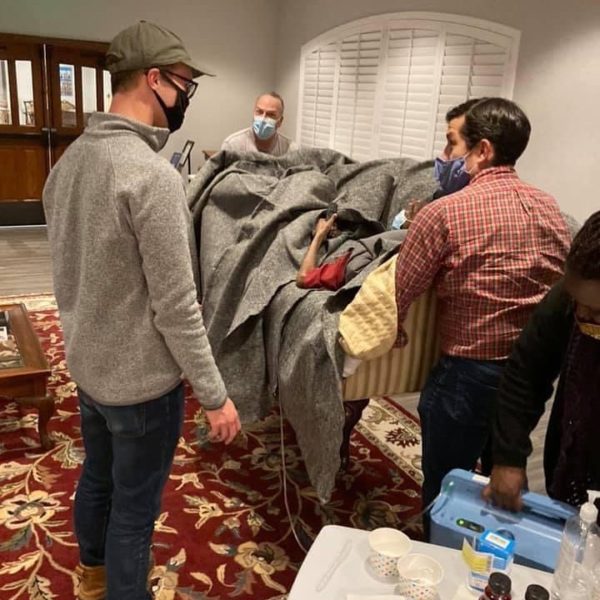
As we began to welcome guests, it became clear that some needed more than just a place to stay warm. For example, one extended family included a mom two days away from giving birth. They needed a way to keep warm while staying isolated and COVID-safe. We were so pleased (and so were they!) to place them in Higgins Parlor, a beautiful “living room” type space named for our founding minister. Here they had a private restroom and could isolate safely.
Many churches, but especially Episcopal churches, concern themselves with feeding their guests. Our congregation’s life consists of pancake suppers, Lenten soup dinners, parish picnics and potlucks, newcomers’ wine-and-cheese parties, and big all-church catered dinners — and of course, that holy meal of bread and wine every Sunday.
For me personally, when I’m hosting an event, I am especially concerned with feeding my guests. So our limited food options at the church presented quite the conundrum for me. Additionally, as a church, we were committed to loving these folks (and volunteers) with hot meals.
Enter Corey McEntyre of Milo All Day and Danielle Young of Revival Eastside Eatery, who both reached out to us to donate prepared food. Between these two angels, we were able to not only serve every guest and volunteer for four days, we were able to send every guest home with food to cover at least a day, maybe two, of meals (remember, power was out and stores were empty at this point). We somehow managed to still have soup left when we closed the center, so our volunteers delivered it to elderly neighbors.
Perhaps the most stunning piece of this experience was the way we were able to serve some guests with unique needs. With power and water out across town, one of our local hospitals could not discharge patients to their power-less homes since they depended on oxygen and required wheelchairs. Not only did we have space available to host them, I knew we could find the right medically-trained volunteers.
Thanks to the many people who said “yes” to our calls — and were brave enough to drive through the tundra — we were able to provide around-the-clock care from a combination of nurses, doctors, and healthcare professionals from our church and community. Thanks to the direction of Liz Ligawa, who was at this point our resident medical social worker, we did full assessments of each guest and were able to connect them with their regular medical services (home health, hospice, family, etc.). We were also able to secure oxygen so they could be transported home. When it became clear that power wouldn’t be restored to one of our guest’s homes for some time, we were able to get this guest into a skilled nursing facility who could meet their needs better than we could.
Thanks to volunteers with four-wheel drive, we were able to send teams to check on the power and water situations at our guests’ homes. (We figured sending our guests to do the checking themselves — “wheelchairs and oxygen on ice” — was a bad idea). This also helped us connect with neighbors and assist them in this crisis.
I can’t end this without telling a couple stories of ways the Waco community stepped up to meet specific needs.
The first story relates to Mr. T, one of our guests, who mentioned to a volunteer that he really liked cereal. We didn’t have any cereal, so this volunteer made it her mission to find some. But she couldn’t find milk because there was no milk in Waco at this point. Well, not even 30 minutes later, the city showed up with a huge donation from Coca-Cola that included a milk drink perfect for cereal. So we sent this now-beloved guest home with milk, cereal, and a bunch of other food to get him situated until he could get to the store.
The next story is about water. We were quickly running out of bottled water and with the looming possibility of a boil order, we were concerned we would not have clean water for our guests. While I was mentally cycling through options, a volunteer texted she was headed to the store and could she pick something up for us? “Water!” I said. She went to Mission Waco’s Jubilee Market, which graciously allowed her to purchase more than the ration. When she went to pay for the water and other supplies, the credit card machine was down and she was short on cash. Jubilee Market gave her a gift card to cover the rest of the supplies. Even with this water from Jubilee, we realized we would need more. At that moment, in walks a parishioner with several cases of water donated by the Robinson Fire Department. Not only did this meet the current needs at the warming center, this allowed us to send water home with every guest.
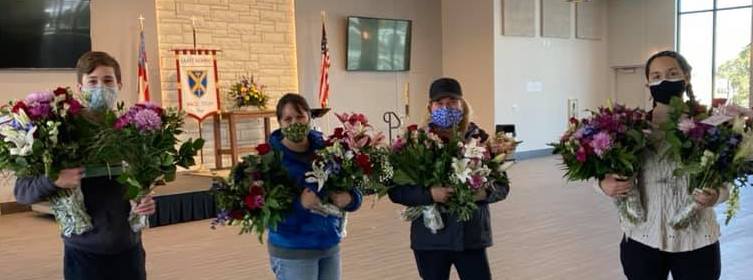
Last story: flowers. Flowers? Yes. We are Episcopalians. We are flower people. We are Easter people. We do the fancy things. And to my surprise, on day two, some of our parishioners arrived with huge crates of beautiful flowers donated by H-E-B (where we usually get our Altar Flowers). They arranged and placed flowers all over the Parish Hall, bathrooms, kitchen, and anywhere with a flat surface. What an expression of God’s lavish love! Also, it helped freshen the air because we are on day “too many” of not having showered due to the water crisis. When the center closed, volunteers wrapped up the bouquets and delivered them to neighbors around the church.
Wacoans, I could go on and on with stories about how your community met the specific needs of your neighbors in this time of crisis, and we were just one of the facilities serving last week. I think we all agree that this unwelcome historic weather event could have been the straw to break our already weary backs. And yes, we are still weary because we are still in multiple crises. But let’s take a break and rejoice in what just happened in our community.
Take heart that some of our most vulnerable residents did not return home to freeze. On the contrary, they had wonderful care including hot drinks and gourmet meals. Not to mention, compassionate care from some of the finest medical professionals in town. Let’s be thankful we have excellent leadership in Waco, leadership that sees the community through such an unprecedented time. Well done, friends. Well done.
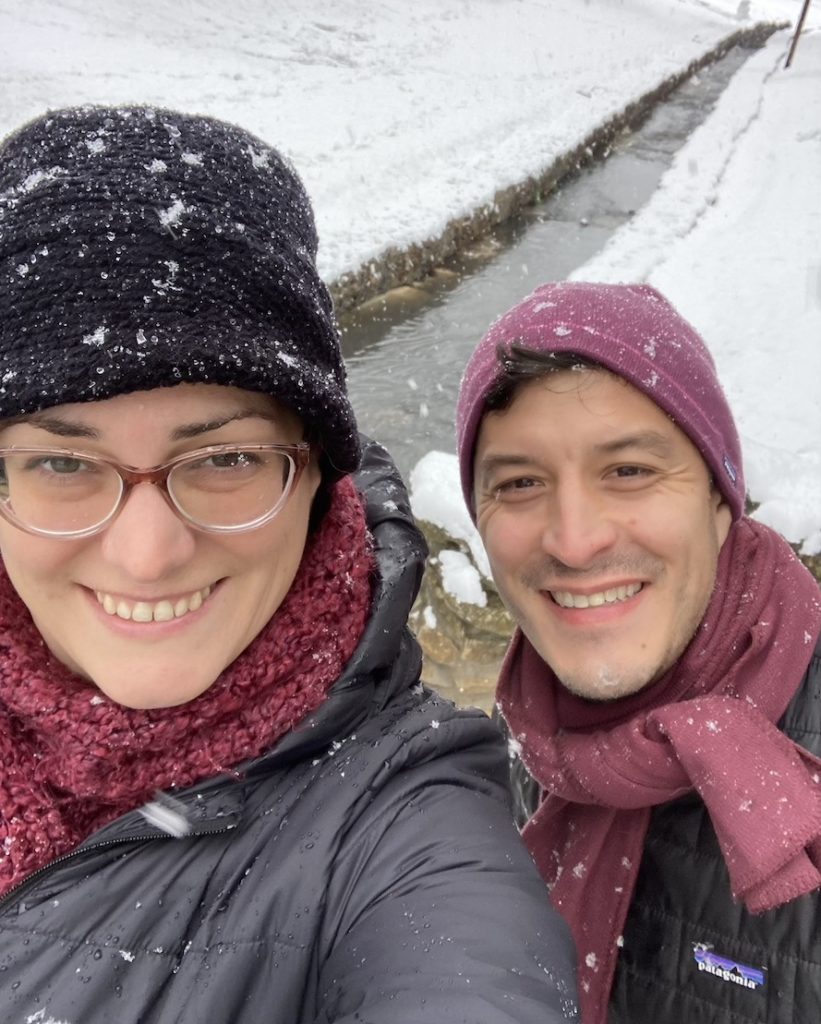
Andrea Zimmerman is a native Michigander, educated in New York City and has lived in Kazakhstan, Boston, Pittsburgh, Houston, and now Waco for nearly eight years. She has worked in the fashion, nonprofit, and churchy arenas. During non-COVID times, she works as a full time 4th & 5th grade tutor focusing on STAAR readiness at Provident Heights Elementary School.
Special thanks to volunteers from St. Alban’s membership and staff:
Sarah Aynesworth
Anna Beaudry
Troy Beaudry
Abel Castro
Stephanie Drum
Emily Edwards
Austin England
Susie Farley
Katherine Goodwin
Johnson Hagood
Vanessa Handy
Kenn Harding
Alan Jones
Stewart Kelly
Tracy Kelly
Michael Larsen
Kara Leslie
Missy Lowder
Neal McGowan
Darren Metting
Holden Miller
Sue Parrigin
Jeff Raimondo
Angela Tekell
Jhonas Theill
Sue Townsend
Meghan Watkins
Christopher Williamson
Andy Wisely
John Wood
Aaron Zimmerman
Abigail Zimmerman
Andrea Zimmerman
Athan Zimmerman
August Zimmerman
Special thanks to Waco/McLennan County Community Members & Organizations:
Michael Attas
Linda Bostwick
Anna Clark-Martinez
Emma Clark-Martinez
Coca-Cola
Elesha Coffman
Lily Coffman
Ryan Dirker, Asst. Emergency Mgt. Coordinator, City of Waco
Amanda Harman
Clint Harp
Kelly Harp
H-E-B Floral Department
M’Lissa Howen
Elizabeth Ligawa, MSW, Central Texas Interfaith
Corey McEntyre, Milo All Day Restaurant
Andy McSwain
Chris McSwain
Lee Pahimeyer
Robinson Fire Dept
Noah Sutton
Waco Fire Department
Waco Transit
Melissa Wray
Danielle and Travis Young, Revival Eastside Eatery
The Act Locally Waco blog publishes posts with a connection to these aspirations for Waco. If you are interested in writing for the Act Locally Waco Blog, please email Ferrell Foster at [email protected].
By Meg Wallace
The first appearance of a mental illness can be terrifying, whether you are the one experiencing it or someone you care about is falling ill. Your mind is muddled, a crisis is gathering steam, and you know you need help — but where to begin? Who will help you find your way?
Chronic depression or anxiety can be isolating. You drop out of your usual activities because it hurts too much to start your day, or you fear you’ll have a panic attack in public. So you stop getting together with friends, and you miss one more Sunday at church. You retreat gradually, and no one notices you’re gone. You’re alone.
Amberley Collaborative has created a continuing education course called Mental Health in Congregations, offered through McLennan Community College Continuing Education beginning Tuesday, Jan 19.
Of course, professional help can make an enormous difference in your life. Medication can reduce your symptoms, and a therapist can help you sort things out. But living with a mental illness can be a day-to-day struggle, or bouts of worsening symptoms may disrupt a period of recovery. It can be a hard road, so hard to walk alone.
In many communities of faith, people commit to walking together. But walking with someone struggling with chronic depression or anxiety can challenge our empathy. We want our friend to snap out of their distress, and when they don’t, we’re unsure how to share time with them. A youth attempts suicide, or a member has a manic episode. They are receiving professional help, and we know we shouldn’t leave them to walk alone between therapy appointments. But the situation feels scary and confusing. What do we do?
Decades of research indicates that people in distress often turn to faith communities for support. When the congregation’s response is healthy, it can be a key aspect of recovery for people living with mental illness. But when the response is negative or unhelpful, congregations can do harm. Continuing education can help faith communities respond helpfully — accompanying people living with mental illness and supporting their recovery.
Amberley Collaborative is a new Waco nonprofit that aims to strengthen community support for people with disabilities and other challenges. In our Mental Health in Congregations initiative, we started by talking to leaders at 23 Waco-area congregations to learn how they’re walking alongside people who are struggling and how they’re helping them access professional services. We also wanted to know how these leaders take care of themselves while they care for others, and we asked what kind of support Amberley Collaborative could provide.
The leaders told us they want help figuring out how to organize care in their congregations so needs come to light and people are supported. They need to know more about mental health services and how to access them. They want to learn about various types of mental health challenges and what kinds of responses are helpful, and they want training on what to do in a crisis. They talked about needing to care well for themselves as they care for others. They want to increase the caring capacity of their faith communities by equipping Sunday school teachers and small group leaders to foster wellness in the groups they lead.
With guidance from these faith leaders, Amberley Collaborative has created a continuing education course called Mental Health in Congregations, offered through McLennan Community College Continuing Education beginning Tuesday, Jan 19. The presenters are mental health professionals, pastors, and people with lived experience of mental illness, and each of the six 90-minute sessions is interactive, with plenty of time for dialogue. Our goal is not just to deliver information, but to create a community of care that will last long after the course is over, and to connect participants with mental health professionals who will continue to support their good work in the future.
Please join us. You can learn more about the class on the Amberley Collaborative website. To register go to the MCC website.
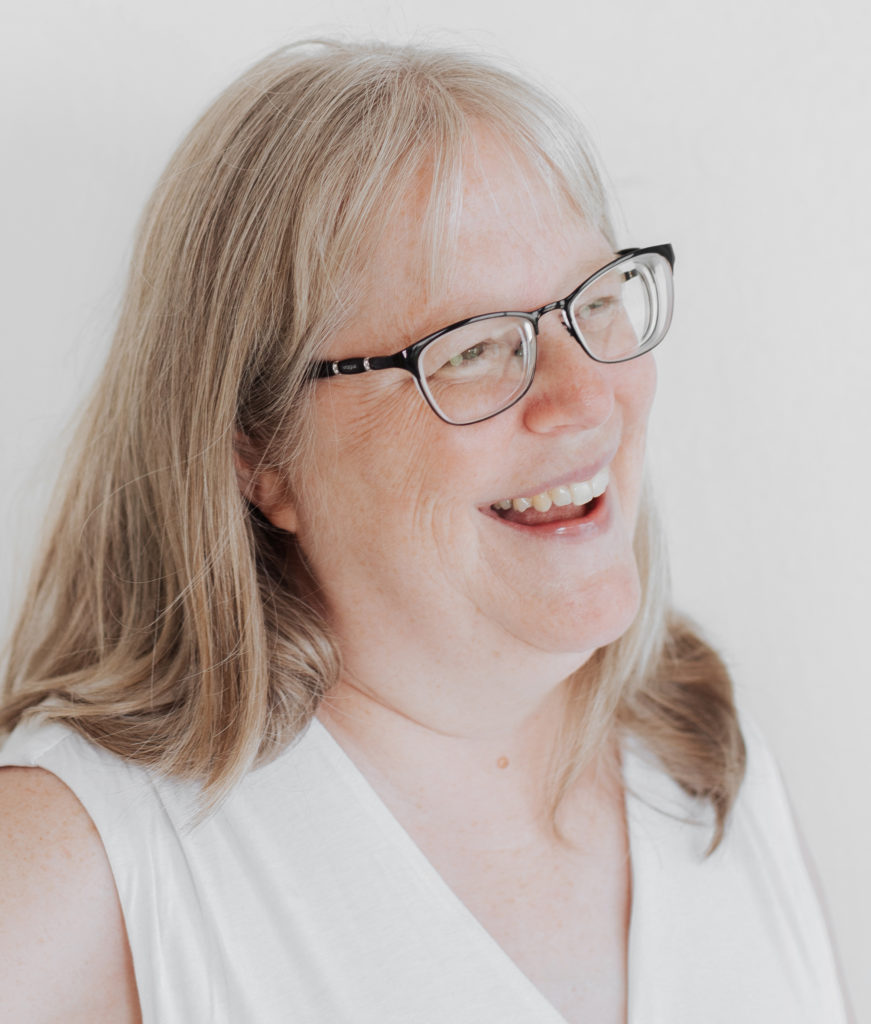
Meg Wallace, MA, LMSW, is a 2018 graduate of Baylor’s Garland School of Social Work. She founded the nonprofit Amberley Collaborative to cultivate the kind of community care her own family has needed while grappling with disability. She continues to work as a freelance editor and book indexer while developing the nonprofit.
The Act Locally Waco blog publishes posts with a connection to these aspirations for Waco. If you are interested in writing for the Act Locally Waco Blog, please email Ferrell Foster at [email protected].
Several Waco churches are working to address specific needs of families associated with Transformation Waco schools. The churches are collecting goods and funds through Dec. 13 for the Christmas Family Resource Pantry.
Grassroots Community Development is coordinating the effort. Grassroots and Prosper Waco set up a Family Resource Pantry this past summer to help Transformation Waco school families suffering from the economic effects of the coronavirus.
“As we’ve begun to hear of specific needs of family from friends at Transformation Waco, we’ve decided to bring back the FRP to provide families with some of those needs over the Christmas break,” said Josh Caballero, a community organizer with Grassroots.
Transformation Waco is a nonprofit working within Waco Independent School District to manage and operate five schools and supporting the communities associated with those schools. The schools are Alta Vista Elementary, Brook Avenue Elementary, J.H. Hines Elementary, G.W. Carver Middle, and Indian Spring Middle.
For more information on the Christmas Family Resource Pantry contact Caballero at [email protected].
The following items are being collected:
- Toilet paper
- Shampoo
- Conditioner
- Bath soap
- Toothpaste
- Deodorant
- Bleach
- Dish soap
- Disposable masks
- Feminine products
- $25 gift card
- « Previous
- 1
- 2
- 3
- 4
- Next »
